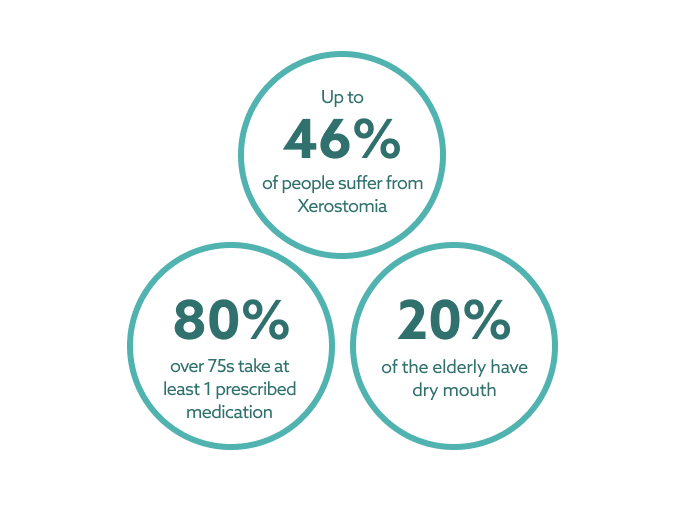Medication & Dry Mouth
Dry mouth is one of the most common adverse effects of medication use in older adults 12
More than 400 commonly used drugs can cause xerostomia.⁸ These can include:*
| Antihistamines |
| Antidepressants |
| Anticholinergics (used to treat bladder issues or Parkinson’s Disease) |
| Anorexiants |
| Antihypertensives (used to treat high blood pressure) |
| Antipsychotics |
| Antiparkinsonian agents |
| Diuretics |
| Certain cancer chemotherapeutic drugs |
| Sedatives |
| Certain anti-sickness drugs |
| Antianxiety agents |
| Decongestants |
| Certain pain killers |
| Antidiarrheals |
| Bronchodilators (used to make breathing easier) |
| Skeletal muscle relaxants |
Xerostomia is a common complaint found often among older adults, affecting 20% of the elderly population. While it is not a function of age, dry mouth is related to medications that are commonly prescribed to the elderly population and that cause xerostomia as a side effect.⁸
There are over 400 drugs that older people commonly take to control some of their acquired diseases, which can dry out the mouth.²
Xerostomia is prevalent in up to 46% of the population.23
Four in five people over 75 take at least one prescribed medication, with 36% taking four or more medicines.13
Approximately 20% of the elderly population suffer from dry mouth.8

*There may be other symptoms/conditions caused by dry mouth that are not included in this list. There are also other conditions and diseases that can cause these problems or symptoms. This list is not extensive, there are other drug classes which may also cause dry mouth.